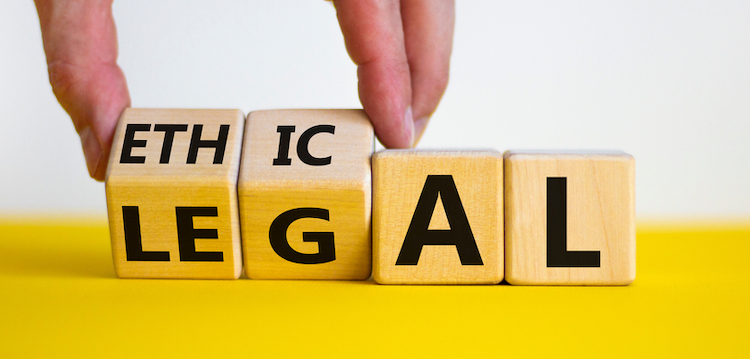Lawyers have an obligation to ensure employees don’t solicit clients, new ABA ethics opinion says

Image from Shutterstock.
Attorneys not only must refrain from engaging in improper direct solicitation of potential clients, but there is also an ethical responsibility to ensure that employees or others hired by the lawyers do not engage in such misconduct, according to a new ethics opinion from the ABA’s Standing Committee on Ethics and Professional Responsibility.
Formal Opinion 501, released Wednesday, identifies that a solicitation under ABA Model Rule of Professional Conduct 7.3(a) is a communication initiated on or behalf of a lawyer or a law firm directed to a specific person that the lawyer knows or reasonably should know needs legal services. The rule permits such direct, face-to-face solicitation if the contacted person is a lawyer, a family member or a close friend or a person who routinely uses the types of services offered by the lawyer.
An ABA press release is here.
The opinion focuses on a lawyer’s ethical responsibilities regarding third parties who solicit on behalf of the lawyer. Model Rule 8.4(a) provides that it is professional misconduct for a lawyer to knowingly assist or induce another to violate the rules—including engage in impermissible solicitation. The lawyer is subject to discipline under 8.4(a) if the lawyer knows of the third party’s conduct or requests or authorizes it.
“It would be manifestly unfair and illogical to hold a lawyer responsible for another’s actions that the lawyer does not even know about,” according to the opinion.
Lawyers also can run afoul of Model Rule 5.3, which provides that lawyers generally are responsible for the ethical conduct of their employees—including nonlawyers. Under Model Rule 5.3, lawyers with supervisor authority “must discuss ethical rules with these employees,” including the rule against solicitation in Model Rule 7.3. The opinion acknowledges that “what constitutes a prohibited ‘solicitation’ on behalf of the lawyer versus merely making a recommendation about the lawyer can be complicated.”
The opinion gives four hypotheticals of solicitation and then explains whether they are permissible or impermissible. The first three include:
- A lawyer obtaining a list from a local sheriff of people arrested and calling such people to offer legal series.
- A lawyer hiring a professional lead generator to obtain client leads for mass tort cases.
- A paralegal at a law firm, who doubles as a paramedic, directly soliciting accident victims on behalf of their law firm.
In all three of these scenarios, the lawyers violated the ABA Model Rules of Professional Conduct by either engaging in direct solicitation in violation of Model Rule 7.3(b), knowingly assisting another in violation of the rules under Model Rule 8.4(a), or failing to train nonlawyer legal assistants on ethical responsibilities under Model Rules 5.3(b) and 5.3(c).
The opinion, however, offers a fourth hypothetical of a lawyer asking a banker, who is a personal friend or colleague, to provide the lawyer’s name and contact information to anyone that might need estate planning.
“Recommendations or referrals by third parties who are not employees of a lawyer and whose communications are not directed to make specific statements to particular potential clients on behalf of a lawyer do not constitute ‘solicitations,’” according to the opinion.



